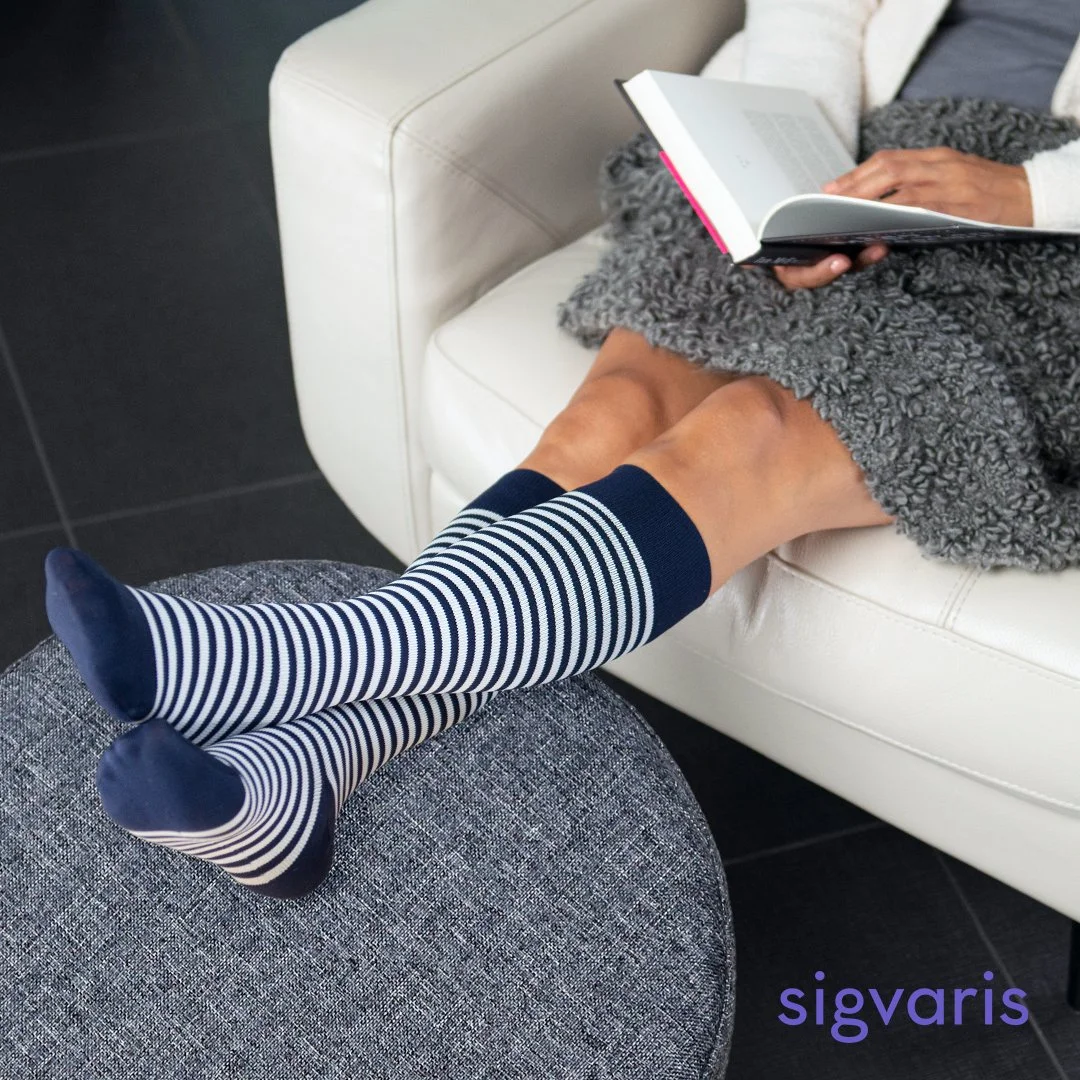Understanding the Connection Between Varicose Veins and Restless Leg Syndrome, and How Compression Can Provide Relief
Varicose veins are not just a cosmetic concern; they can also lead to uncomfortable symptoms like Restless Leg Syndrome (RLS). Below we will explore the link between varicose veins and RLS, and will highlight how compression therapy can offer relief from both conditions.
Varicose veins are swollen and twisted veins that often occur in the legs. They result from weakened valves in the veins, leading to poor blood flow and pooling of blood. Whereas Restless Leg Syndrome is a neurological disorder characterized by an irresistible urge to move the legs, accompanied by uncomfortable sensations such as itching, tingling, or a crawling sensation. While the exact cause of RLS is unknown, studies suggest that venous insufficiency caused by varicose veins can contribute to its development.
Venous insufficiency caused by varicose veins can lead to venous hypertension, where blood fails to flow efficiently from the legs back to the heart. This increased pressure can irritate nerves, contributing to the symptoms of RLS. Additionally, stagnant blood in varicose veins can release inflammatory substances that further affect nerve function and exacerbate RLS symptoms as well.
Compression therapy can help as they apply graduated pressure to the legs. Below is how compression therapy can provide relief from both varicose veins and RLS:
Improved Blood Circulation: Compression stockings exert gentle pressure on the veins, promoting better blood flow and reducing pooling in the legs. This helps alleviate the venous insufficiency associated with varicose veins and reduces RLS symptoms.
Reduced Swelling and Inflammation: Compression garments assist in reducing swelling and inflammation by preventing the accumulation of fluid in the legs. This can alleviate discomfort and the restless sensations often experienced with RLS.
Calming Effect on Nerves: Compression therapy can have a soothing effect on irritated nerves, potentially reducing the intensity of RLS symptoms. The compression helps to stabilize and support the leg muscles, reducing muscle twitching and promoting a sense of relaxation.
Varicose veins and Restless Leg Syndrome often go hand in hand due to the venous insufficiency. Compression therapy offers a non-invasive and effective solution for managing both conditions. By improving blood circulation, reducing swelling, and calming irritated nerves, compression stockings provide much-needed relief. Consult with a healthcare professional to determine the appropriate compression level and find the right compression stockings for your needs. Embrace the comfort and freedom to enjoy life without the burden of varicose veins and restless legs!
Book an appointment to have your legs measured and pick the style and color of socks!



